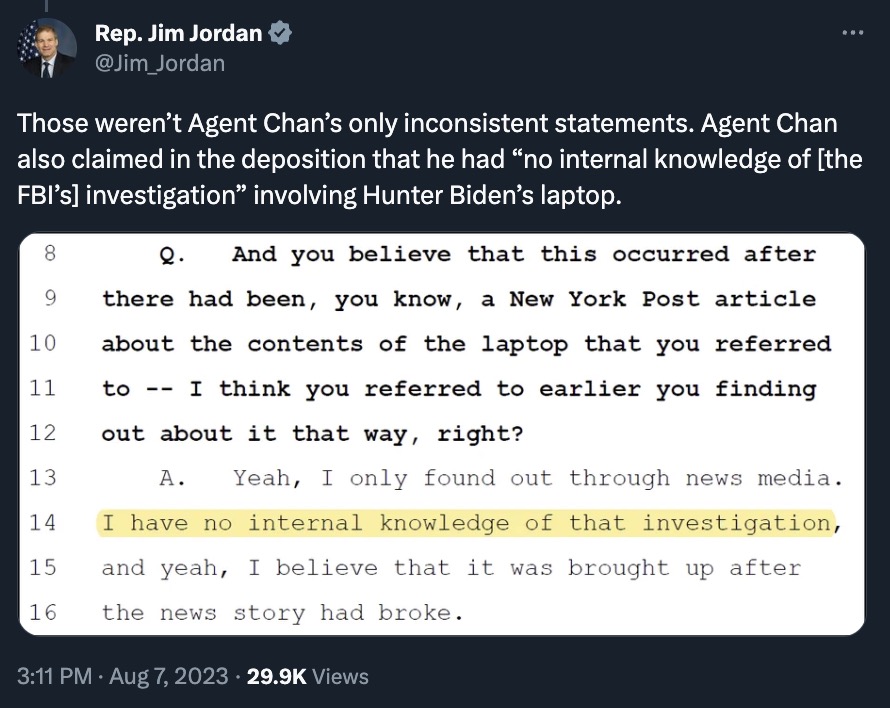In a striking revelation, evidence suggests that Elvis Chan, a San Francisco-based FBI special agent, made false statements under oath regarding his interactions with major tech firms related to the reporting of Hunter Biden’s laptop hard drive in the run-up to the 2020 election. This revelation is according to allegations following information gleaned from internal Facebook documents obtained by the House Judiciary Committee.
In October 2020, The New York Post released explosive reports detailing purported involvement by the President’s son, Hunter Biden, in international business transactions with his father, Joe Biden. The subsequent discussions and correspondence between Chan and Facebook concerning these revelations have come into stark focus. In one interaction dated October 15, 2020, a Facebook employee detailed their conversation with Chan during which the employee recalled Chan suggesting he was familiar with the Hunter’s laptop FBI investigation, referencing a dearth of evidence pointing to foreign interference in the situation.
However, Chan’s sworn testimony on Nov. 29, 2022, painted a divergent scenario. He proclaimed to have no knowledge of the FBI’s internal investigation on the laptop’s contents. Chan repeated that he only communicated with Facebook once within the context of a conference call with the FBI task force. This conflicting testimony is part of a lawsuit against the Biden administration by the attorneys general of Missouri and Louisiana. Their contention posits that the White House colluded with tech giants to stifle free speech unfairly.

Interestingly, another crucial detail from Laura Dehmlow, the task force’s section chief, throws additional shade on the situation. She recounted to the House Judiciary Committee how, during a phone call with Twitter officials on Oct. 14, 2022, an FBI agent corroborated the laptop’s authenticity before being suddenly halted by another participant.
According to the allegations made by the House Judiciary Committee, Chan’s disputed testimony did not go unchallenged. Judiciary Committee Chairman Jim Jordan vehemently refuted Chan by branding his account as “COMPLETELY FALSE.” Jordan maintained that Chan served as a bridge between the FBI’s Foreign Influence Task Force and major tech firms. He underlined the FBI’s confirmation of the laptop’s authenticity in contrast to the constant denial of foreign involvement.
Tech companies’ behavior during this episode underscores broader issues related to free speech and censorship. Noteworthy is Facebook’s decision to curtail the exposure of The Post’s laptop reports, invoking its misinformation policy. Even more disturbing was Twitter’s outright blocking of efforts to share the story, relegating it as “hacked materials.”
The issue extends further as just five days after the reports, 51 former intelligence officials, prompted by then-Biden campaign advisor Antony Blinken, signed a letter casting doubt on the story by ascribing to it the hallmarks of a Russian disinformation campaign.
Perjury, a severe offense in the legal world, is often under-prosecuted unless linked to a coordinated attempt to compromise the judicial process. Despite the indications, Elvis Chan might have committed this act during his civil case testimony, the House Judiciary Committee alleges.










